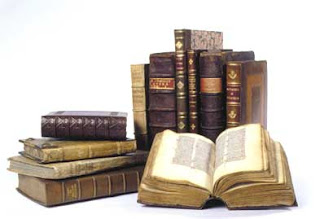Hello again. Been awhile since I sent one of these out. Last part, so why delay?
Where we left off last time: We learned that, despite what we saw in Robin Hood, Richard the Lionheart spoke French, spoke at length about meats, and discovered that the church is the reason you hated biology class (and not in the way you expected).
Part 3: Webster was a Workaholic
in which a bloodless linguistic revolution occurs, or an exercise in historical name dropping
This section is probably the most important for this is one that is not yet complete. This is English in its modern form, a language first used by Shakespeare and Marlowe and Donne and every great writer who came in the centuries to follow. The beginning of the tongue you and I speak; the emergence of the language I am composing this ever-increasingly long essay in.
Modern English was brought about by the Great Vowel Shift of the 15th century, which sounds more like a revolution than a linguistic change. But the effects were no less significant than any coup.

The death toll was devastating.
Long vowel sounds are the main difference between the pronunciation of Middle English and the Modern form. Until the 15th century, vowels in English were pronounced more like Continental European languages. But in 1450, the English began elongating the vowels of many of their words. Not the first nor the last time the Brits wished to distinguish themselves from the rest of the European continent, English speakers in the 15th century began changing their pronunciation. They continued to do so for the next three centuries.
Why, you ask? We have no freaking idea.
There were no invading hordes or power struggle between dynasties. The language just changed, and we don't really know why. Oh, there are numerous theories of course, and each is just as plausible as the next, but none are definitively true.
One reason put forth is the mass migration to Southern England of all its people after the Black Death devastated a large amount of the population. With people from all over the country forcibly living together in close quarters, everyone adjusted their voices to produce a more standard pronunciation.
Another possibility is connected to the nobility. In the early 15th century, the ruling class was finally speaking English. Perhaps unappreciative of the statement better late than never, though they were now speaking the same language of the peasantry, the hierarchy still needed to distinguish themselves as such. So they began shifting their words to create a prestige accent in English. They elongated their vowels to make them sound more French, or what they perceived as more English. Which is, in fact, two completely opposite scenarios, and yet for some reason no scholar can agree upon either.
A third possibility is the aforementioned political and social upheavals of the 15th century. With many people dying of the plague, people of lower birth, and therefore regional accents, were elevated to higher positions of society. As with most cases, language changed along with those in charge.
But whatever the reason, the shift did occur. And in the 15th and 16th century, English became a standardized language which a modern speaker can both read and understand, if not requiring the assistance of annotations.

Now if only someone could explain this whole hawk and handsaw thing.
But how, you ask, did it standardize? This I can answer.
For the very same reason all of language standardized during that time. It all had to do with a man living in Strasbourg by the name of Johannes Gutenberg.
Anyone who paid even the slightest attention in history class has heard the name Gutenberg. Even if we do not know exactly why, we vaguely remember he was really important to history. But it was not so much the man, but his invention that literally changed the world. For in 1440, Gutenberg invented the printing press.
You don't need a history degree to appreciate how big a deal the printing press is, but I will further hammer into your head why. Gutenberg's invention modernized learning, thought, and language in ways never before seen in the whole record of human history. He ensured that knowledge, and the sharing of ideas, was easier and more accessible than ever before. There is a very real reason that the time of enlightenment and the Age of Reason corresponded with the invention of the printing press.
Again, why? Because until the miracle of movable type, every book had to be made by hand. Most likely by monks, and most likely in Latin. This meant that books were not only extremely expensive, but also written in Latin. Very few could afford them, and even less could read them.
A printing press was revolutionary because it meant that anyone could publish anything, and in their native tongue.
Putting aside the intellectual ramifications for a moment, the printing press also had an understandably massive effect on language. With written works becoming affordable, and composed and printed in native vernacular, the widespread distribution of English texts created for the first time in history a cohesive English language.
With the printings of plays and books and treatises, the English people finally had an accessible, written record of their language. English practically exploded in the 16th cenury with new vocabulary and wordage, as people from all over the country were exposed to words they never before knew existed.
In fact, the first true English dictionary was put together in 1604 by a school teacher named Robert Cawdry.

Who no one has ever heard of, thanks to Samuel Johnson.
He was worried, quite kindly so, about people's confusion over all these new words. A justifiably understandable concern, as scholars say that during this period that Shakespeare invented anywhere from 700 to 1500 words.
It's a tricky concept, inventing words. For proof, look back to the beginning of this essay, and the kerfuffle over beamish. To this day, there's a scholarly debate over who "invented" words in his work. Some people want to attribute such words as eyeball and epileptic to him, while others want to say he just coined or reproduced them.
Whichever the case, the simple fact remains that he was definitely the first to put them down on paper. Modern English would not be the language it now is without Shakespeare, searing new words into the language with ink and parchment.

So the only question left is, what did they call it before?
So in terms of language, whether he was the true progenitor of these words are, to me, unimportant. He accomplished the much more difficult task of putting them into distribution.
Shakespeare was popular. His plays and sonnets were read by many. They were performed, printed, and passed around, and people heard the words. Whatever the true source, Shakespeare is the reason they went into common usage. And that is what's truly important.
Equally important during this time was the development of American English. As America as a nation was founded, and flourished, Modern English developed into two distinct forms, American and British.
American English, just like the language from which it deviates, borrowed many words from the Native people and their Spanish speaking neighbors. But the divergence between the American and British dialects goes beyond pronunciation and new vocabulary. The real difference is in the very spelling of our words, the largest departure from the original language.
We have Noah Webster to thank for that.
Webster, bascially, saw himself as the ultimate patriot. A young man when the American Revolution took place, he dedicated his life to releasing America from the "cultural thralldom" of Britain.

The last stranglehold of our oppressors.
Webster thought an intellectual foundation was essential to independent American thought. Though he began his greatest work as a Blue Back Speller to be used in schoolhouses, the book of words he produced became the first of many editions of Webster's dictionary.
In writing these volumes, Webster was attempting to rescue our language from the corruption of the British aristocracy. He saw America's imitation of the British system of studying foreign languages to learn English as ridiculous and pedantic. He once wrote that "...the whispers of common sense in favour of our native tongue, have been silenced amidst the clamour of pedantry in favour of the Greek and Latin."
So how did he fight our British subjugators? By eliminating all those superfluous u's that he himself used three times in that little excerpt of writing. With his dictionary, the American people would no longer be shackled by the
u in
neighbour,
honour, and
colour. Our
center will not weigh under the oddly French looking
centre. And by god, nothing says America like spelling
defense, not
defence.

Let Freedom Ring!
But all joking aside, Webster had a solid point. It made little sense to learn Latin to study English grammar. He spent 27 years working on his dictionary, "americanizing" words and creating a cohesive spelling system. Essentially, he standardized American speech, adding words that did not appear in British dictionaries like skunk and squash. He helped shape a uniquely American dialect.
And clearly ignoring his own advice, Webster also learned 26 languages just to fairly evalute the etymology of words, including Old English, French, Hebrew, Arabic, and Sanskrit. In 1828, the culmination of years of hard work come to fruition when he published the first edition of Webster's American Dictionary.
So in the hands of the British and the Americans, English was then attached to a people who went on to dominate most of the world. As the importance of the English speaking countries of North America developed, and the British empire expanded across the globe, by the dawn of the 20th century English had become the lingua franca of the modern world.
There of course have been little additions along the way. Each age brings new vocabulary, and things that were once nonce or nonsense words have been incorporated into our normal vernacular.
Chortle is not just a portmanteau of chuckle and snort, but an actual word in our lexicon.
Quark is no longer just a nonce words used by James Joyce in
Finnegan's Wake, but now a subatomic particle. And as new technology and the age of the internet has developed rapidly, words like
tweet and
friend have become verbs used in their own right.

Ones I staunchly refuse to use.
No one can claim that our tapestry is not growing. English is still evolving, flourishing with the times and its people. And though we move forward, adding new ribbons of cloth and color, we still can see the connection to our past. Our modern tongue, no matter how much it changes, will always be directly affected by that which came before it.
An unbroken whole composed of disparate parts, made all the more beautiful for it.




















